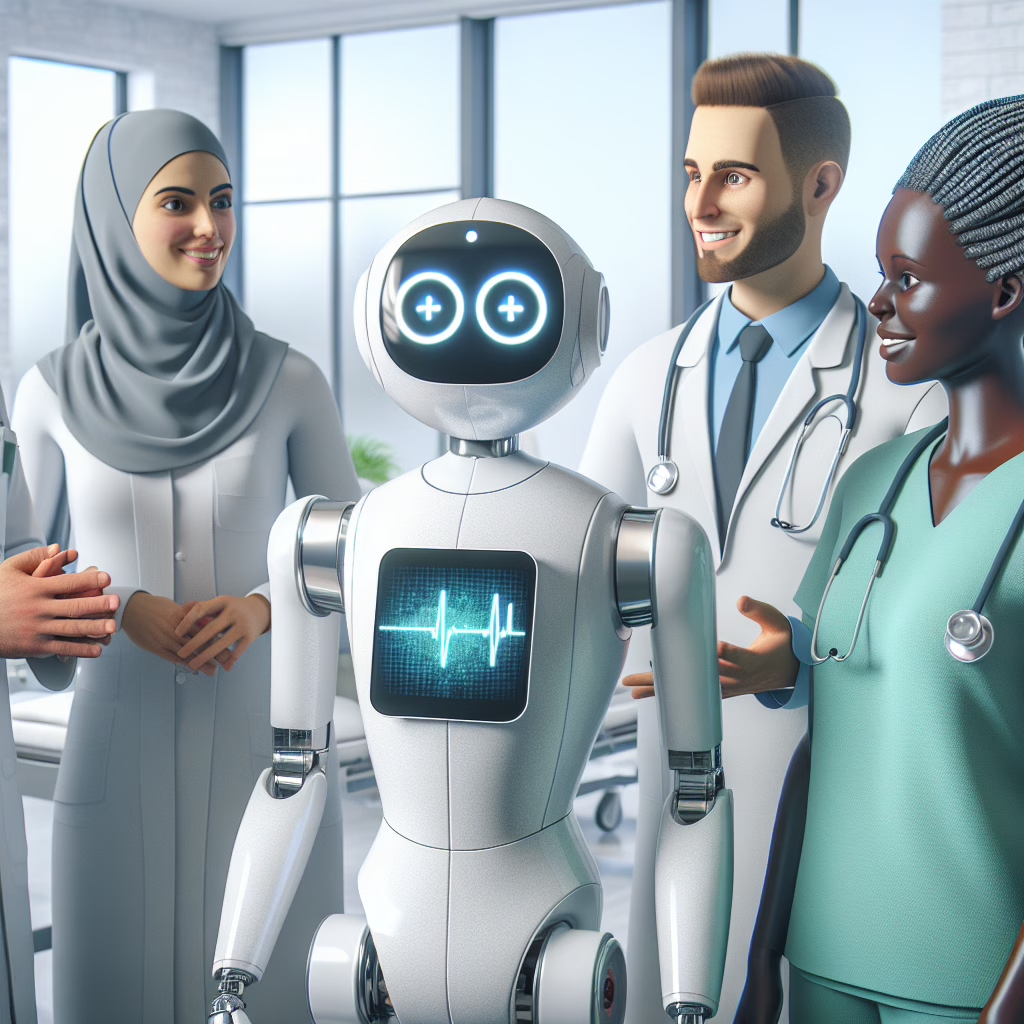In the ever-evolving landscape of healthcare, AI is not just a buzzword; it’s a beacon of hope illuminating the path to better health. As we leap into 2025, the potential of AI to revolutionize health and wellness is becoming clearer than ever. Let’s dive into how this tech marvel is reshaping our understanding of well-being and how we can thrive in a world increasingly powered by artificial intelligence.
How AI is Changing the Game for Health
Imagine waking up one day to find that your healthcare provider has been replaced by an AI assistant named “HealthBot 3000.” Sounds futuristic, right? Well, that future is now! AI systems are streamlining medical processes, helping doctors diagnose conditions faster than you can say “WebMD.” With algorithms analyzing mountains of data, these systems can detect patterns that might escape even the most seasoned professionals.
The integration of AI in health isn’t just about efficiency; it’s about enhancing patient care. For instance, AI applications help monitor patients remotely, ensuring that they receive timely interventions without the need for inconvenient hospital visits. This means fewer waiting rooms and more time for doctors to engage in meaningful conversations with their patients—like discussing why you really need to cut back on those late-night snack binges.
The Rise of Personalized Medicine with AI
Gone are the days when a one-size-fits-all approach was the norm in healthcare. Thanks to advances in AI, personalized medicine is here to stay! Algorithms now tailor treatments based on individual genetic profiles and lifestyles. So, instead of flipping a coin to decide your treatment plan, expect something as unique as your Netflix recommendations—because who doesn’t want their healthcare to feel like a personalized streaming service?
Companies like Thrive are at the forefront of this revolution, using AI to analyze patient data and provide bespoke health recommendations. This means you can finally say goodbye to those generic diet plans that never quite fit your lifestyle (sorry kale, it’s not you; it’s me!). Instead, imagine a plan designed just for you that takes into account everything from your favorite foods to your exercise preferences!
The Ethical Side of AI in Health
Of course, as we embrace this brave new world of AI-driven health, we must also address ethical concerns. Privacy issues loom large as our health data becomes fodder for algorithms. It’s like giving your diary to a nosy neighbor—how much do we really want them to know?
Leaders like Sam Altman emphasize that while technology should enhance our lives, it must do so responsibly. This includes maintaining transparency about how data is used and ensuring that individuals have control over their own information. After all, nobody wants their most embarrassing health moments trending on social media!
AI’s Role in Mental Health
The mental health crisis continues to grow, but there’s hope on the horizon! AI technologies are stepping up to provide support through virtual therapy sessions and mood tracking apps. These tools can remind you to take a deep breath or suggest that you step outside for some fresh air—because let’s face it; sometimes we all need a gentle nudge.
Moreover, platforms like Thrive integrate mental wellness into overall health strategies by using AI-driven insights to help users maintain balance in their lives. Who knew technology could be such a caring companion? You might even find yourself talking more to your AI therapist than your actual friends—don’t worry; they won’t judge you!
The Future Looks Bright
As we look ahead, the future of healthcare with AI appears not only promising but downright exciting! From enhancing diagnostics to personalizing treatment plans and improving mental wellness, artificial intelligence is poised to become an indispensable ally in our quest for better health.
So, whether you’re ready to embrace your new robotic doctor or prefer your human healthcare providers (no judgment here!), remember that innovation is key. The journey towards thriving in this AI-driven age will require collaboration between tech innovators and healthcare professionals. Together, they can ensure that while we’re busy enjoying our personalized health journeys, our privacy remains intact.
Additionally, exploring AI’s impact on health opens avenues to advanced treatments and ethical considerations that we must navigate thoughtfully. We invite you to share your thoughts on how AI influences health and wellness today! Do you see yourself consulting with an AI for medical advice? Or are you more comfortable with traditional methods? Let us know in the comments below!
A special thank you to The Atlantic for providing insights into this fascinating topic!

